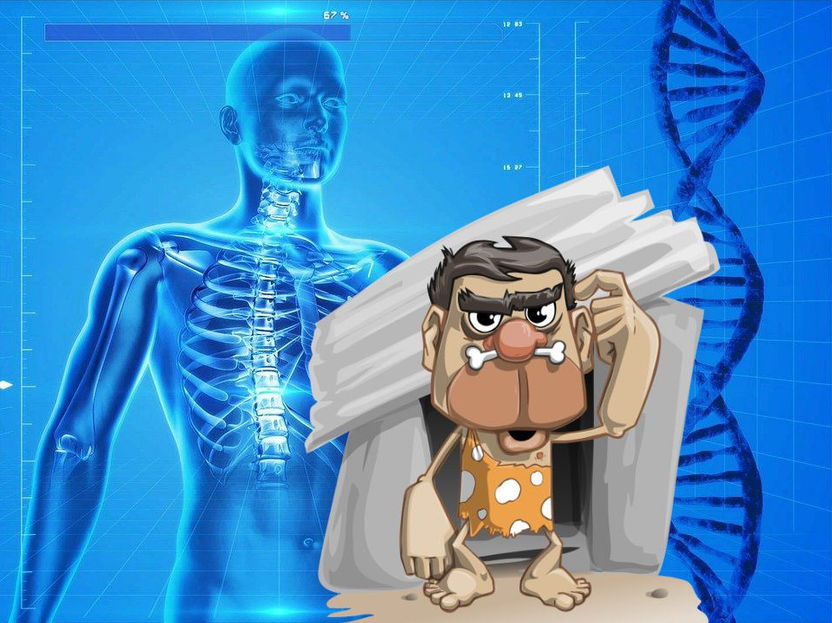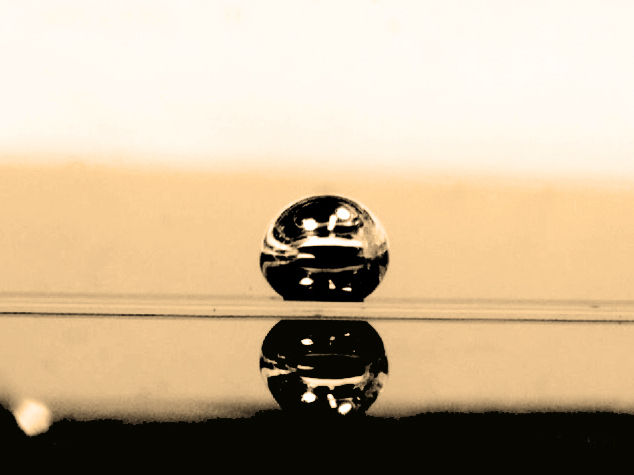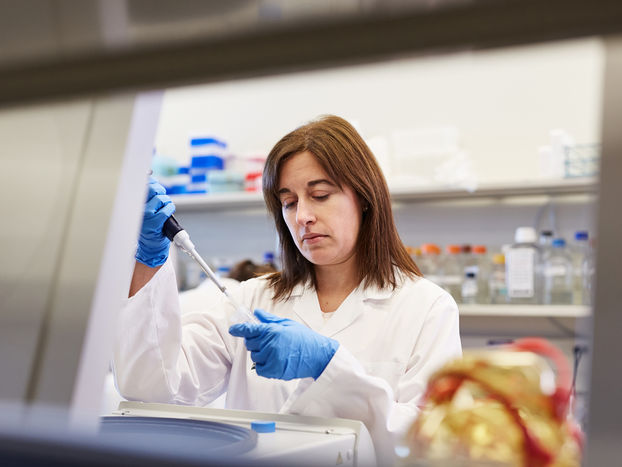Neandertals may have had a lower threshold for pain
People who inherited a special ion channel from Neandertals experience more pain
pain is mediated through specialized nerve cells that are activated when potentially harmful things affect various parts of our bodies. These nerve cells have a special ion channel that has a key role in starting the electrical impulse that signals pain and is sent to the brain. According to a new study by researchers at the Max Planck Institute for Evolutionary Anthropology in Germany and the Karolinska Institutet in Sweden people who inherited the Neandertal variant of this ion channel experience more pain.

Symbolic image
pixabay.com
As several Neandertal genomes of high quality are now available researchers can identify genetic changes that were present in many or all Neandertals, investigate their physiological effects and look into their consequences when they occur in people today. Looking into one gene that carries such changes, Hugo Zeberg, Svante Pääbo and colleagues found that some people, especially from central and south America but also in Europe, have inherited a Neandertal variant of a gene that encodes an ion channel that initiates the sensation of pain.
By using data from a huge population study in the UK, the authors show that people in the UK who carry the Neandertal variant of the ion channel experience more pain. “The biggest factor for how much pain people report is their age. But carrying the Neandertal variant of the ion channel makes you experience more pain similar to if you were eight years older”, says lead author Hugo Zeberg, a researcher at the Max Planck Institute for Evolutionary Anthropology and Karolinska Institutet. “The Neandertal variant of the ion channel carries three amino acid differences to the common, ‘modern’ variant”, explains Zeberg. “While single amino acid substitutions do not affect the function of the ion channel, the full Neandertal variant carrying three amino acid substitutions leads to heightened pain sensitivity in present-day people.”
On a molecular level, the Neandertal ion channel is more easily activated which may explain why people who inherited it have a lowered pain threshold. “Whether Neandertals experienced more pain is difficult to say because pain is also modulated both in the spinal cord and in the brain”, says Pääbo. “But this work shows that their threshold for initiating pain impulses was lower than in most present-day humans.”
Original publication
Most read news
Original publication
Hugo Zeberg, Michael Dannemann, Kristoffer Sahlholm, Kristin Tsuo, Tomislav Maricic, Victor Wiebe, Wulf Hevers, Hugh P.C. Robinson, Janet Kelso and Svante Pääbo; "A Neandertal sodium channel increases pain sensitivity in present-day humans"; Current Biology; 23 July 2020
Topics
Organizations
Other news from the department science

Get the life science industry in your inbox
By submitting this form you agree that LUMITOS AG will send you the newsletter(s) selected above by email. Your data will not be passed on to third parties. Your data will be stored and processed in accordance with our data protection regulations. LUMITOS may contact you by email for the purpose of advertising or market and opinion surveys. You can revoke your consent at any time without giving reasons to LUMITOS AG, Ernst-Augustin-Str. 2, 12489 Berlin, Germany or by e-mail at revoke@lumitos.com with effect for the future. In addition, each email contains a link to unsubscribe from the corresponding newsletter.
Most read news
More news from our other portals
Last viewed contents

Mini-centrifuge simplifies study of blood cells - New organ-on-chip possibilities
Burnout_(psychology)
1,3-Bisphosphoglycerate

Cancer-fighting viruses soften up their victims before attacking - Researchers based at the University of Ottawa and The Ottawa Hospital harness virally-programmed extracellular vesicles to shrink tumours in mice
Allograft_diseases
Analbuminaemia

Diamond dust shines bright in Magnetic Resonance Imaging - Potential alternative to widely used contrast agent gadolinium






















































